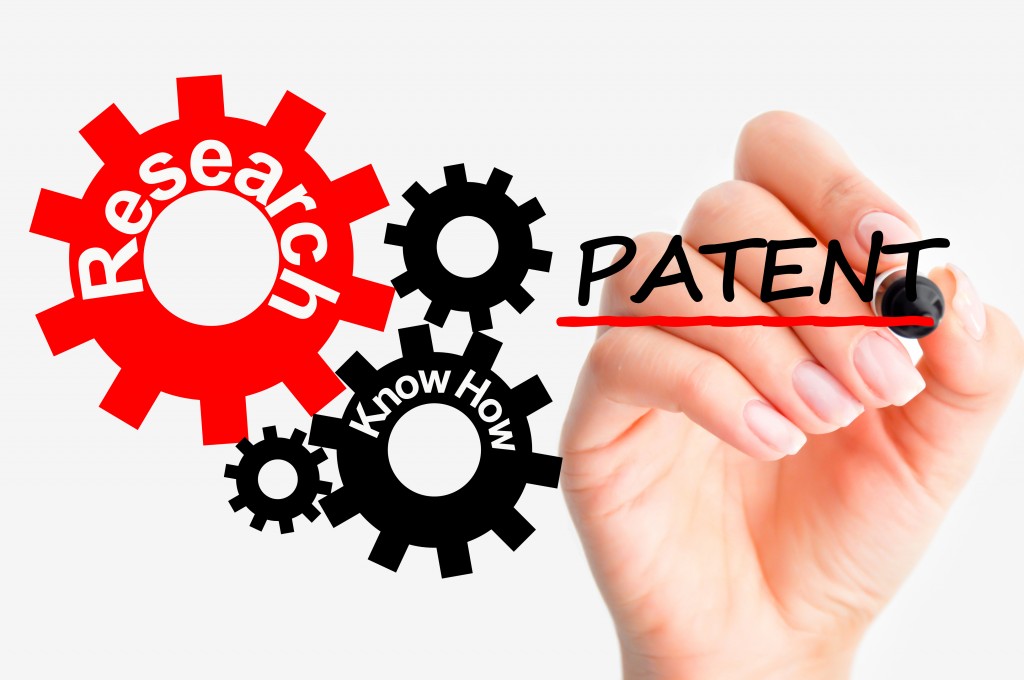PATENT PROSECUTION & COUNSELING
Products and methods of use are patentable
To be patentable, a product or method must be both novel and non-obvious over prior products and methods. In the context of patentability, this means that the object of the invention was neither (a) known in the art by a person of at least ordinary skill in the art prior to the filing date of the patent application, nor (b) obvious to a person of at least ordinary skill in the art at the time the invention was made. The relevant “state of the art” is comprised of all information that was publicly-available prior to the application filing date (e.g., written publications, presentations, etc.).
 Obtaining a patent:
Obtaining a patent:
To obtain a patent, a patent application must be filed with the relevant patent office (e.g., the United States Patent and Trademark Office, or “USPTO”). The application contains written claims that define what the applicant regards as the patentable invention.
The office examines the patent application for compliance with formal and substantive requirements (i.e., novelty, non-obviousness, written description, enablement, etc.). After any deficiencies are remedied, the patent is granted.
With the patent, the patent owner can prevent others (e.g., competitors) from making, using, selling, or importing the invention. So long as the patent remains enforceable, it can confer a competitive advantage to the patentee over competitors. Thus, patents often constitute an essential portion of a company’s assets.
Scope of Patent Protection:
The protection from unauthorized making, using, selling, or importing conferred by patent protection depends on the patent’s claims. A patent’s claims are interpreted in light of the patent specification (description of the invention). Thus, appropriate wording of the claims is critically important.
Our Practice:
Our experience ranges from consultations during the initial phases of product development — e.g., helping to identify likely candidate inventions for patent protection — to obtaining patent rights, and defending those rights before the USPTO Patent Trial and Appeal Board (PTAB) or challenging the patent rights of others.
Our patent attorneys support various entities, from start-ups to large multinational enterprises. With backgrounds in biotechnology, chemistry, relevant industry sectors, and the USPTO examining corps, our attorneys and agents are prepared to comprehend inventions at a technical level while considering strategies for obtaining a broad range of patent protection.
We routinely assist clients with large and small scale product development efforts to minimize the likelihood that their conduct would result in the infringement of a valid claim of a third party patent. We are also well acquainted with patentability issues involving natural products and phenomena in view of the United States Supreme Court’s Myriad and Sequenom lines of cases.
| PROCEEDING | WHO MAY SEEK? | WHICH PATENTS ARE AFFECTED? | LEGAL STANDARD? | GROUNDS? | ESTOPPEL? |
| Ex Parte Reexamination | Anyone | All patents | “Substantial new question” of patentability (“SNQ”) | Patents Published patent applications Printed publications |
No legal estoppel |
| Post-Grant Review | Anyone except patent owner | Any patents having a claim with a priority date of 16 March 16 or later PGR request must be filed within nine months of issue | “More likely than not” that at least one claim is unpatentable | Any invalidity ground | Raised or reasonably could have raised
Applies to subsequent USPTO, ITC, or district court actions |
| Inter Partes Review | Anyone except patent owner | All patents
Available nine months after issue (i.e., after Post-Grant Review window closes) or after any pending PGR concludes |
“Reasonable likelihood” that petitioner would prevail on at least one challenged claim | Patents Published patent applications Printed publications |
Raised or reasonably could have raised
Applies to subsequent USPTO, ITC, or district court actions |
| Supplemental Examination | Patent owner only | All patents | “Substantial new question” of patentability would result in Ex Parte Reexamination by USPTO | Any information | Not applicable |
